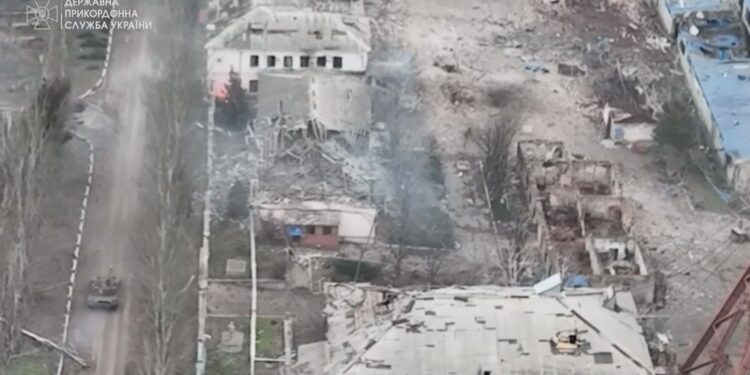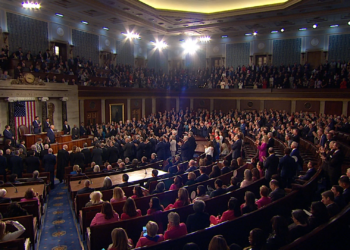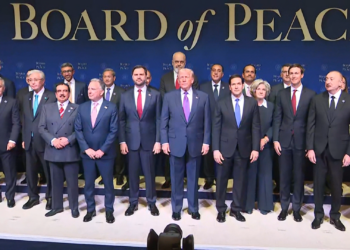WASHINGTON, D.C. – This time of year marks the third anniversary of the Russian invasion in Ukraine. The new administration wants to end the war on their terms but experts with the Center for European Policy Analysis (CEPA) said the US needs to include Europe and Ukraine at the negotiating table.
Under the previous administration, President Joe Biden would comment on Ukraine’s bravery in defending their country and assert that the u-s would continue to support Ukraine, but there’s a shift in the US attitude towards the war following President Trump’s return to the White House. Trump has shut out Ukraine from peace negotiations with the Kremlin and there’s a growing feud between Trump and Ukrainian President Volodymyr Zelenskyy.
“It can’t just be a deal, it has to be a good deal,” said Catherine Sendak, director of the Transatlantic Defense and Security with CEPA. “And that includes Ukraine at the table and having European leaders buy in. That’s where the Trump administration can make it successful and not just seek a deal.”
CEPA invited experts to hold a recent discussion on Ukraine’s future. While the US is encouraging European leaders to step up their contributions, experts said it’s vital that the US remains engaged.
“What do we have to focus on is what will get us a lasting peace and that’s where our European allies are focused and where Ukraine is focused and that is going to require we maintain and not abandon one of our strongest forms of strength which is our ability to work with our allies and partners,” said William Monahan, senior fellow, Transatlantic Defense and Security with CEPA.
Despite the negotiations going on between Russia and the US, experts said Ukraine needs to continue advocating for EU and NATO membership.
“Fast tracking [Ukraine into EU membership] doesn’t do anybody any favors,” said Sam Greene, director, Democratic Resilience at CEPA. “It will create problems both for Ukraine and for the EU. Down the road, Ukrainian integration into the EU is going to be incredibly complicated. And it’s not to say that it can’t be done. And Europe is particularly when it comes to integration in its own institutions. Is actually very, very good at doing very, very complicated things.”
“But the key is not to let these questions about the war and the outcome of the war get in the way of that process,” added Greene. “What Europe needs is, is long term planning and long term thinking.”
“Ukraine has over 10 years of experience of fighting against an enemy that is considered to be NATO’s number one threat,” said Ilya Timtchenko, co-author “Between Now and NATO: A Security Strategy for Ukraine”. “Ukraine, being the largest country within Europe and with the pre the 2022 invasion population, which was around 42 million, has just incredible military experience to offer to NATO and to the United States.”
“I would hope that the issue of Ukraine membership in NATO would not be part of the negotiation, in that it should be something that is reserved as the right of a sovereign nation to determine who the nation will associate itself with,” said Monahan.
Timtchenko and Sendak released a comprehensive report titled “Between Now and NATO: A Security Strategy for Ukraine”. They looked at security assistance and cooperation case studies of Afghanistan, Colombia, Israel, Lebanon and Taiwan as part of their analysis. While experts said there are different ideas about a framework for Ukraine’s stability and security, the report makes some recommendations for Ukraine and it’s partners, like the US should appoint a special envoy or representative for Ukraine’s security and defense, help Ukraine build their defense industrial base and make the messaging clear about their goals and support for Ukraine.
“Having congress go on the record and reaffirming US support is absolutely critical at this point,” said Monahan.










